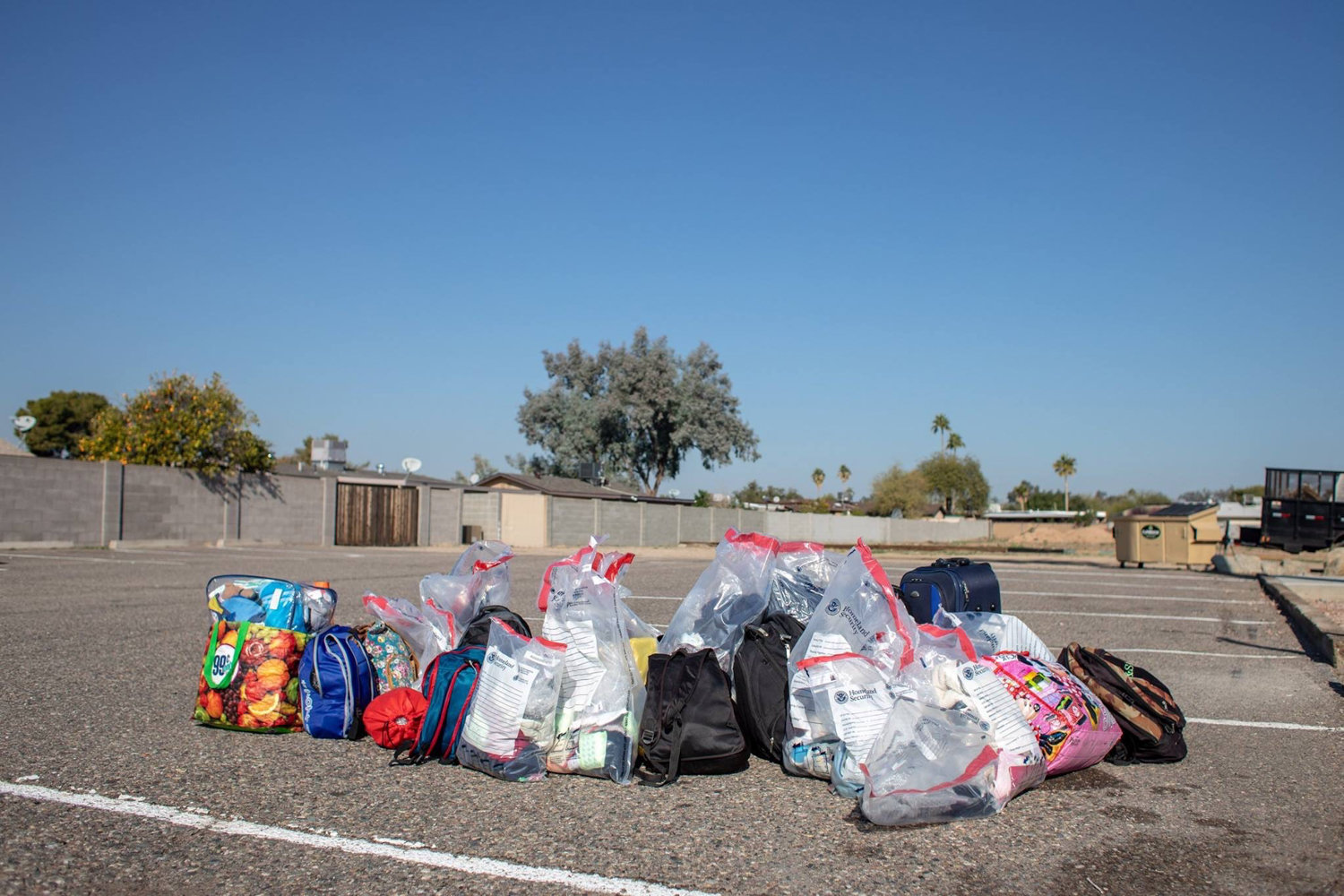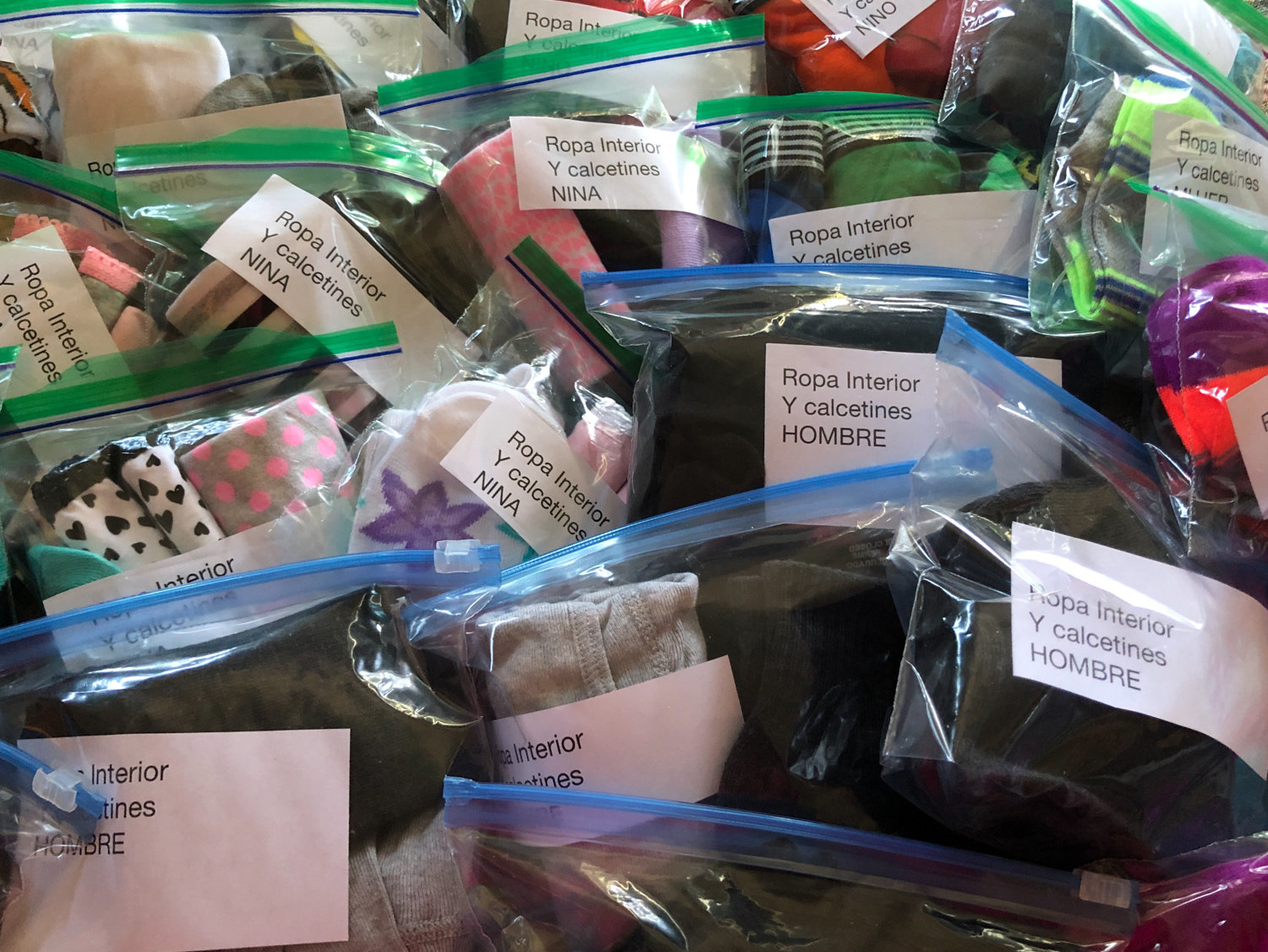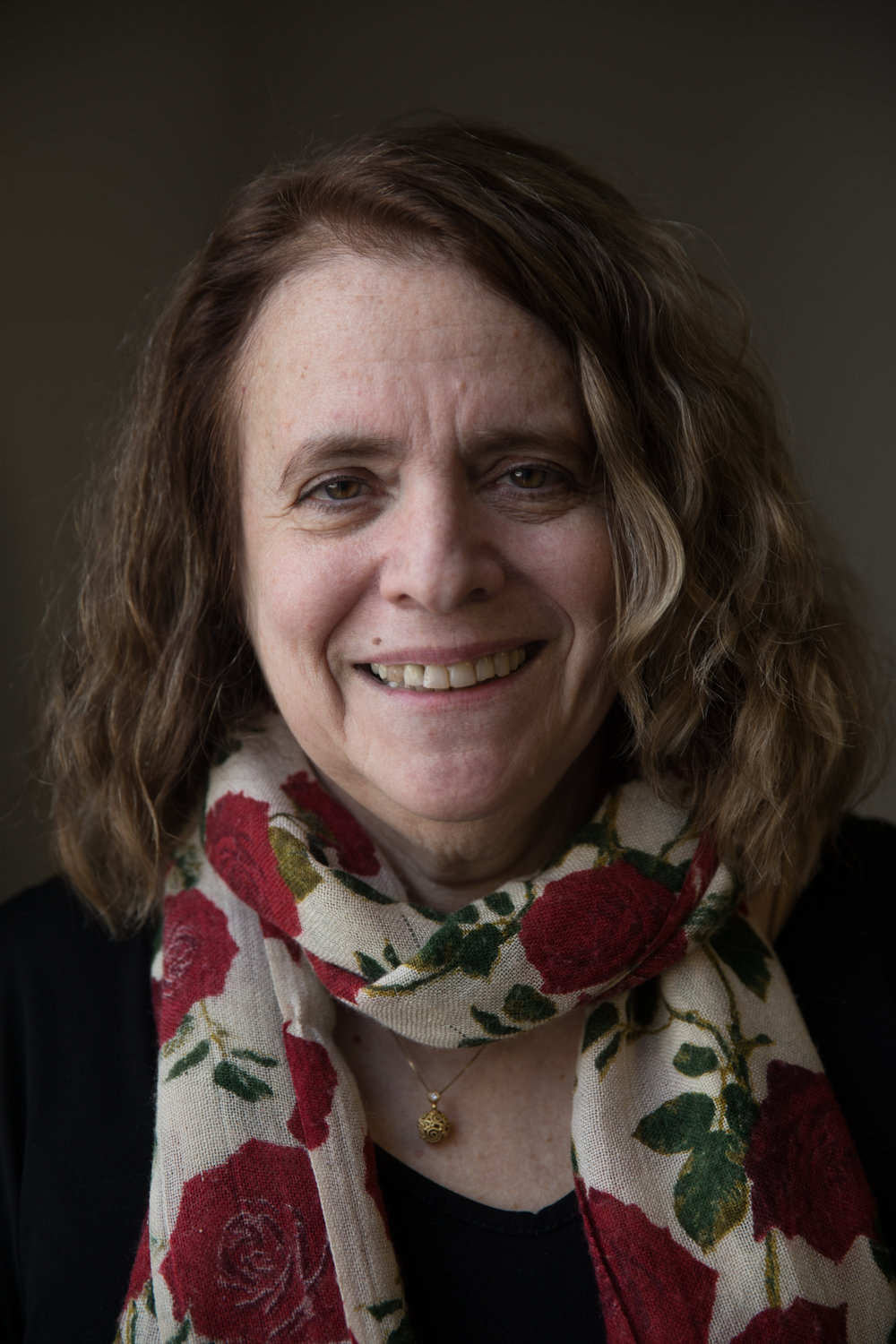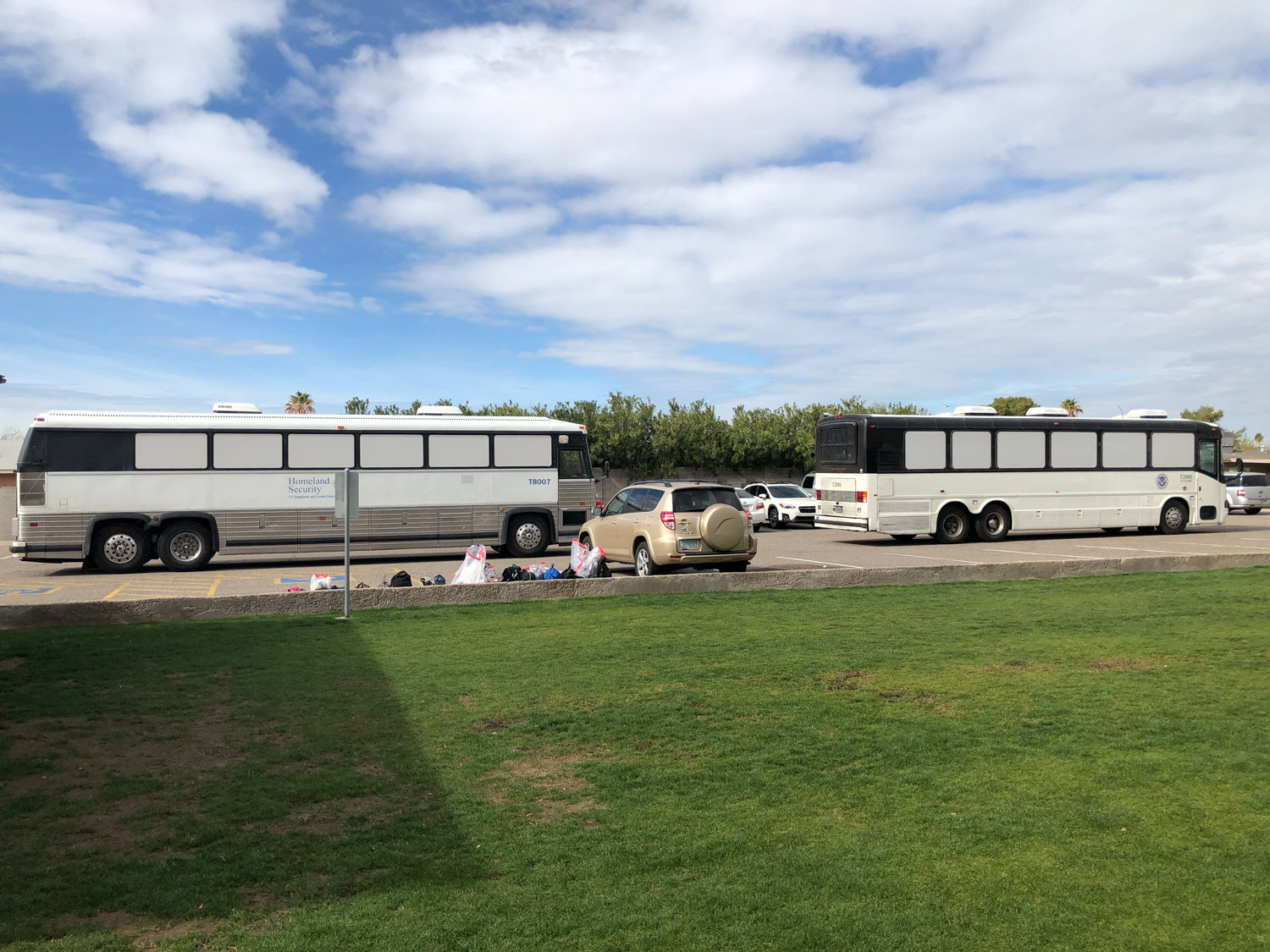Stranger in a strange new land?
Not to worry, former Riverdale Y director is here to help
Marti Michael comes from a family focused on volunteer work, and helping out wherever needed. As the executive director of The Riverdale Y, Michael lent many a helping hand to community center members during her tenure there, and once she retired in 2014, quickly found herself tiring of her free time.
“Retirement is a strange animal,” Michael said. “You really have to get used to not working. I loved it for about a week, and then it was like, ‘All right, what am I going to do every day?”
Michael started scouting for volunteer opportunities, ultimately accepting board seats for several organizations. Last year, amidst the never-ending news cycle about asylum seekers at the border, Michael found the activist group Arizona Jews for Justice, called them to inform them she was coming, and booked a flight.
At the time, U.S. Immigration and Customs Enforcement was processing hundreds of asylum-seekers, dropping them off in Phoenix every day. It was there Michael visited a church where she worked alongside campaign organizer Eddie Chavez Calderon to help settle in two buses of recent border crossers ICE was delivering.
“I could see them coming,” Michael said. “Phoenix is all low, one-story houses, so the buses were almost as tall as the houses. I could see them coming.”
The buses that pulled up at the church had blacked-out windows to prevent its passengers from seeing where they were going. While the pastor boarded the bus to take custody of those onboard, volunteers formed a “welcome line” along the pathway to the church, waiting to greet the asylum seekers as they walked into the building.
A woman grabbed Michael, though, and led her to the side of the driveway, facing the street.
“She said, ‘Open your coat and hold your hands out like this,’ and then she held my hand,” Michael said. “The pastor pulled up a truck on one side, and Eddie pulled up a truck on the other side of her.”
On the other side of the street, she said, was a red pickup truck.
“And out of the pickup truck comes an older man with a rifle, a German shepherd dog, and a video camera,” Michael said. “He’s from the Patriot Movement. And he’s there to take pictures of who’s coming off the bus. Video, to put on their website.”
Patriot Movement AZ is an activist group the Southern Poverty Law Center has deemed a “far-right extremist group.” Earlier this year, two Arizona churches that took in asylum seekers sued the group for conspiring to violate civil rights, invasion of privacy, and defamation, according to Arizona Public Media.
“So we’re trying to block his camera. I’m like this,” Michael said, spreading her arms out to demonstrate. “And he’s got a gun. That was my first experience.”
Once inside the church, however, the mood changed. The newly arrived asylum seekers were served a hot meal, and Michael went around to the children to hand out small stuffed animals she had bought for each of them.
“I took two families shopping for new clothes,” she said. “Most of them only want one of something. They want one shirt. I think it’s because they’re used to carrying everything, they don’t realize that this is the end of carrying.”
First stop to the future
The families had usually arrived in Phoenix for just a night or two before they were sent on across the country to join their sponsors, a U.S.-based family member who would take care of them while they waited for their asylum hearing.
Michael’s work isn’t just at the border. In fact, her travels include trips to Ohio where she would spend days in transit stations, waiting for buses carrying asylum seekers heading toward their sponsors.
She would help them work out their bus schedule, where to go next, and handed out bags of food, toiletries, and toys for children.
Typically, the bus stop is about 20 minutes — just enough time to use the restroom and collect their bags from volunteers.
“There’s a story from this last time, where a little girl, I gave her a doll. And she was enthralled with the doll,” Michael said. “Until she saw my bag of tangerines. And then she threw the doll on the floor and she went over to take a tangerine. That’s a big part of her diet, is fruit, and they’re dying for fresh fruit.”
Despite how difficult the work was, Michael now calls this time “the good old days.”
In January, President Trump implemented what he called “migrant protection protocols,” requiring migrants crossing a country that is not their own or the United States to seek asylum there first before heading to America.
Previously, Michael said, migrants would apply for asylum when they reached the border, had to pass a credible fear test, and were typically held in detention in the United States before they were allowed to go on to their sponsor to wait for their hearing.
Now, if someone leaves Guatemala for the United States, and crosses Mexico to get here, they have to apply for asylum in Mexico first. In fact, even when they’re applying for such status in the United States, they must continue to wait in Mexico until their request there is resolved.
Crossing the bridge of assistance
Thousands of people are waiting in Matamoros, Mexico, for their chance to apply, according to published reports. While they’re there, the nonprofit humanitarian group Team Brownsville crosses the international bridge to provide meals and water to people who are largely without any kind of resources, and no other source of food and water.
In fact, it’s the efforts of that Brownsville, Texas, group that has Michael gearing up for what comes next. She’s leading a larger trip in January with a small group of volunteers — including two Manhattan College students — to work with Team Brownsville, cooking and delivering meals across the bridge.
“It sounds overwhelming to me,” Michael said. “Have you ever cooked for a thousand people? I have no idea how to do that.”
She’s chatting with past volunteers on Facebook about the best practices.
“Don’t make hot dogs,” Michael said she learned online. “It’s extremely labor- intensive. That’s a thousand hot dogs you have to wrap up.”
Instead, Michael is taking a more iconic, diplomatic approach known as the icebreaker for many new neighbors: “Make casseroles.”
Those just arriving outside the United States still have months to wait, but Michael stays optimistic, especially in the rare times she can experience firsthand the end result.
Last year, a lawyer she works with in Ohio invited her to see a citizenship oath ceremony.
“There were a couple hundred people there,” Michael said. “Some of them were her clients. And they were becoming citizens. It was the best way to start this. I think they were from 42 countries — in the middle of Ohio.”













